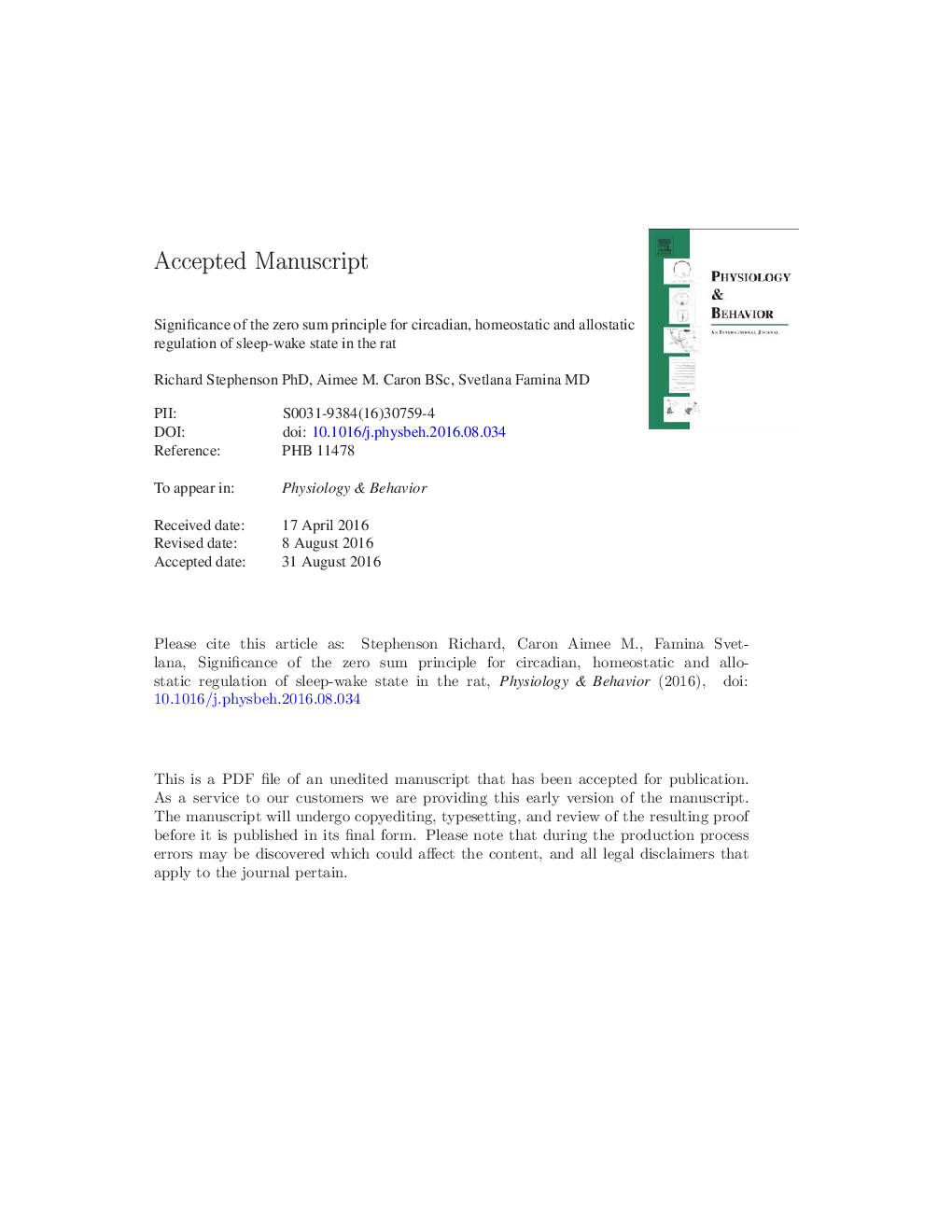| کد مقاله | کد نشریه | سال انتشار | مقاله انگلیسی | نسخه تمام متن |
|---|---|---|---|---|
| 5922475 | 1571152 | 2016 | 32 صفحه PDF | دانلود رایگان |
عنوان انگلیسی مقاله ISI
Significance of the zero sum principle for circadian, homeostatic and allostatic regulation of sleep-wake state in the rat
ترجمه فارسی عنوان
اهمیت اصل جمع صفر برای تنظیمات روزانه، هوموستاتیک و آلومینیومی حالت خواب در موش صحرایی
دانلود مقاله + سفارش ترجمه
دانلود مقاله ISI انگلیسی
رایگان برای ایرانیان
کلمات کلیدی
محدودیت خواب مزمن، مدل مارکف، محرومیت از خواب، هوموستاز خواب انتقال دولت، اصل کل صفر،
موضوعات مرتبط
علوم زیستی و بیوفناوری
بیوشیمی، ژنتیک و زیست شناسی مولکولی
فیزیولوژی
چکیده انگلیسی
Sleep-wake behavior exhibits diurnal rhythmicity, rebound responses to acute total sleep deprivation (TSD), and attenuated rebounds following chronic sleep restriction (CSR). We investigated how these long-term patterns of behavior emerge from stochastic short-term dynamics of state transition. Male Sprague-Dawley rats were subjected to TSD (1 day Ã 24 h, N = 9), or CSR (10 days Ã 18 h TSD, N = 7) using a rodent walking-wheel apparatus. One baseline day and one recovery day following TSD and CSR were analyzed. The implications of the zero sum principle were evaluated using a Markov model of sleep-wake state transition. Wake bout duration (a combined function of the probability of wake maintenance and proportional representations of brief and long wake) was a key variable mediating the baseline diurnal rhythms and post-TSD responses of all three states, and the attenuation of the post-CSR rebounds. Post-NREM state transition trajectory was an important factor in REM rebounds. The zero sum constraint ensures that a change in any transition probability always affects bout frequency and cumulative time of at least two, and usually all three, of wakefulness, NREM and REM. Neural mechanisms controlling wake maintenance may play a pivotal role in regulation and dysregulation of all three states.
ناشر
Database: Elsevier - ScienceDirect (ساینس دایرکت)
Journal: Physiology & Behavior - Volume 167, 1 December 2016, Pages 35-48
Journal: Physiology & Behavior - Volume 167, 1 December 2016, Pages 35-48
نویسندگان
Richard PhD, Aimee M. BSc, Svetlana MD,
